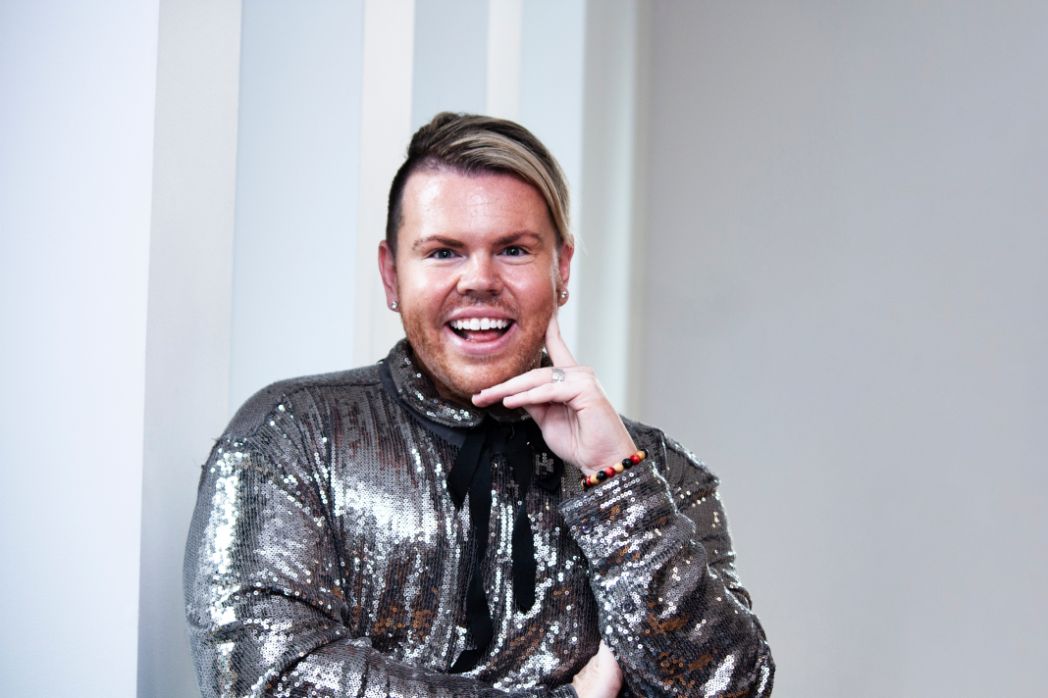Many workplaces are moving to ensure greater inclusivity in their recruitment and employment, in line with Closing the Gap targets. However, Indigenous Australians have much lower employment rates than non-Indigenous Australians.
We asked UNE law alumnus, law lecturer and First Nations Advisor to an international law firm, Ashurst, how we might address this issue.
In his advisory role - believed to be the first and only role of its kind in a global law firm - Trent has become a trailblazer in the cultural awareness space. In the firm's offices he ensures that all everyday business is informed by a deep respect for and understanding of First Nations culture; he drives Indigenous initiatives, consultation and engagement with staff and clients to ensure it "forms a central part of what the organisation does". On the international stage, Trent also advises staff on their anti-racist efforts.
"In my Ashurst role and as co-chair of the Legal Profession Reconciliation Network, I am asking the profession to change their thought processes; to platform and prioritise the rich diversity of First Nations voices in our work," he says.
"My whole life has been leading up to this moment, to playing a role in re-educating people; to invite them to step out of their Euro-centric world and into the cultural world, to learn how to respectfully engage with First Nations peoples. It wasn't a premeditated or strategic career move; it was simply a case of 'let's get this job done'."
Trent, where do we start to try to achieve greater First Nations representation in the workforce and more Indigenous leadership?
Many businesses are too focused on numbers of First Nations employees, when the real focus needs to be on the values and policies of the organisation.

Trent Wallace is First Nations Advisor to an international law firm, Ashurst.
What principles do you have in place that respect First Nations voices? How is this going to be a culturally safe organisation for First Nations people to come into?
The amount of bullying and covert and overt racism that happens in Australian workplaces is mind-blowing, because there hasn't been a sufficient focus on creating a strong, solid cultural foundation that is safe for mob. That is what's sorely lacking.
There is also a painful lack of First Nations voices in rooms where decisions are being made. Look at C-suites and boardrooms – where are First Nations peoples? Often times, First Nations staff are responsible for creating cultural changes, but sit in unstable employment, particularly in the social justice sector.
First Nations knowledge is sacred and powerful – and should be respected accordingly.
First Nations knowledge is sacred and powerful – and should be respected accordingly.
How do you go about changing that?
By hiring cultural consultants/advisors empowered to suggest and make changes. This is to ensure that all staff have a working understanding of the culture, family obligations and kinship that makes First Nations people unique. Such a consultant would also be responsible for working with management to ensure that mechanisms are in place if there were to be an incident of racism, so that it can be immediately addressed.
It's all about the values of the organisation, listening to First Nations people and hiring appropriately. That means stepping outside of the generic matrix of ‘what makes a good employee’ – stepping away from grades and assessing any mitigating factors. Allow a First Nations person to develop an employment strategy. Once a person is appointed, their expertise must be recognised. I’m firm on this point because we deserve to participate in the economy, to own homes, to live comfortably.
Is cultural competency training an important part of this education?
You will never be totally competent in First Nations culture because we are such a diverse and rich group of peoples. But you can gain some working knowledge to lay the groundwork for culturally sensitive behaviours founded on respect. Managers need to ask themselves why they want First Nations people working in their organisation and what that means for those individuals. It has to be authentic.
You have advised a number of organisations on cultural awareness and that's a large part of your current role. Why is it important for Australian organisations to provide opportunities for First Nations peoples and to support them in those roles?
I call the training I’ve developed ‘cultural generosity’ because I feel there’s a very generous angle to it, and it comes from a place of wanting to reach into the minds and hearts of people.
I think that the gravity of this being stolen land is often forgotten. This land has made many people incredibly wealthy or, at the very least, provided financial stability and prospects of home ownership. Contrast this with the Stolen Wages crisis and the situation of First Nations peoples, for whom the prospect of a next meal can be questionable, let alone living comfortably financially.
Corporate citizenship in Australia carries with it a unique set of responsibilities – which in 2021 are being felt differently to 5 or 10-plus years ago. I’m proud to see how seriously the responsibilities are being taken and this can escalate into employment, but HR practices must be amended to fit First Nations peoples. They need to take into account the prevalence of disability within community, caring obligations (which aren’t described in such a way), overt and covert racism in the workplace – and other factors that can be learnt about through cultural training.


